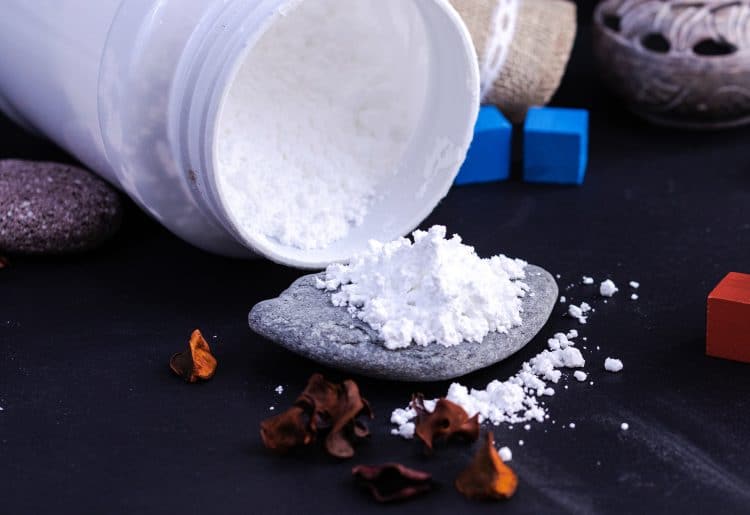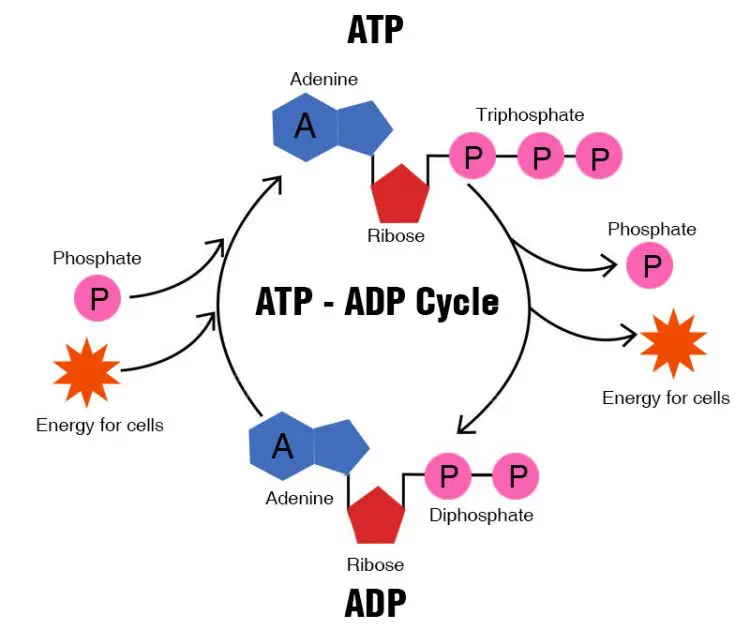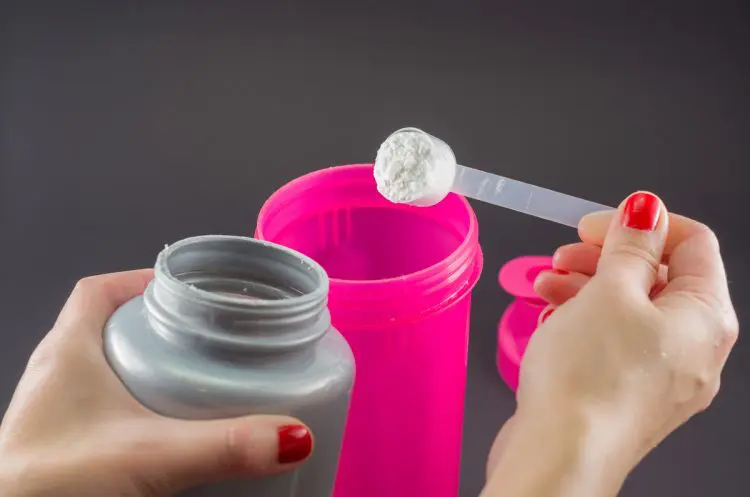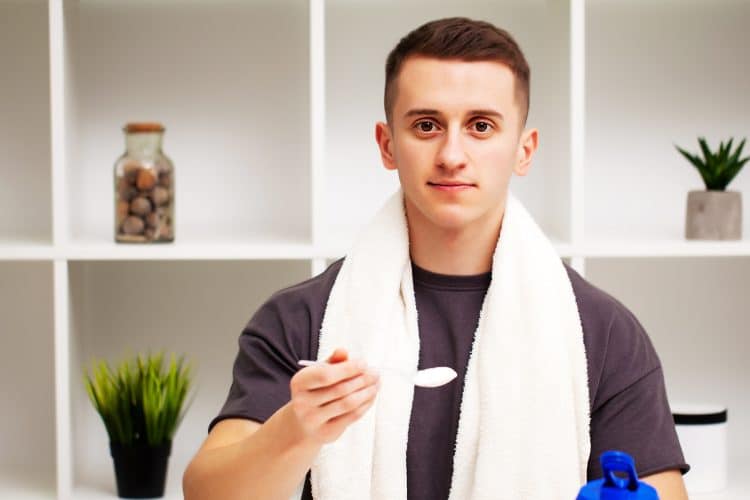Creatine is one of the most researched, safe, and effective supplements in the sports nutrition industry and is fast becoming a darling of strength sports athletes.
Creatine is a naturally occurring molecule in the human body. Supplementing with creatine increases its concentration level in the cells, leading to several health and performance benefits. [1]
Furthermore, studies have shown supplementing with creatine can also have psychological benefits. Research conducted on 32 elderly individuals found that creatine supplementation aids cognitive abilities. [2]
How Does a Creatine Supplement Work?
Before we discuss if you should take creatine on rest days, let’s get into how creatine supplements work and how to get the best bang for your buck by improving their effectiveness.
Creatine is one of your body’s natural sources of energy. About half of the body’s creatine supply comes from a carnivorous diet, and the remaining is produced in the liver and kidneys and then delivered to the skeletal muscles for use.
About 95% of creatine is stored in the skeletal muscle, mainly in the form of phosphocreatine. The other 5% is found in the brain and testes.
As per research, if your diet contains meat and fish, your creatine muscle stores are likely only 60 to 80 percent full. You can maximize your creatine store by using a creatine supplement. [3]
Creatine is used during physical activity. The compound helps maintain a continuous supply of energy and delays the onset of fatigue.
Supplementing with creatine increases your stores of phosphocreatine, a form of stored energy in the cells which helps your body produce more of a high-energy molecule called ATP.
ATP is often called the body’s energy currency and can help improve your performance during physically intensive tasks in the following ways:
- Increasing phosphocreatine stores in muscles: The additional phosphocreatine helps produce more ATP — the key energy source during high-intensity training. [4]
- Lower myostatin levels: Spiked myostatin levels in the body can slow or inhibit new muscle growth. Creatine can lower these levels, increasing muscle growth potential.
- Boosts hormone levels: Studies have shown creatine consumption can increase your IGF-1 hormone levels. [5]
- Improves cell hydration: It is no secret creatine raises water content inside your muscle cells, which aids in boosting muscle growth. [6]
- Reduces protein breakdown: Creatine helps avoid a catabolic state by reducing muscle breakdown.
- Enhances cognitive function: Supplementing with creatine boosts phosphocreatine stores in your brain, promoting brain health and improving symptoms of neurological disease.
Check Out: Best Creatine Supplements Reviewed & Ranked.
Should You Take Creatine On Rest Days?
Now that you know a few benefits of supplementing with creatine, let’s address the elephant in the room — should you take creatine on your off days when you do not hit the gym?
Before we dive into the use of creatine on rest days, let’s take another detour and understand how people usually consume the performance-boosting supp.

Two Creatine Dosage Methods
Here are the two most popular ways of supplementing with creatine:
1. Loading and Maintenance
The first method involves two steps, and a lifter needs to switch between the two regularly to maximize his creatine levels.
- Loading Phase: It includes taking 20 grams of creatine daily, five to seven days a week. This dose is typically divided into four 5-gram servings throughout the day.
- Maintenance Phase: In this phase, you can maintain your creatine stores by taking a lower dose of creatine, ranging from two to ten grams daily. However, most people stick with the regular five-gram serving in the maintenance phase.
2. Regular
The second method involves a more laid-back approach. It involves consuming one serving — three to five grams — of creatine every day. This technique can be equally effective at maximizing your body’s creatine levels, but it may take a bit longer.
Taking Creatine on Off Days
Let’s do a little recap before moving forward. Until now, we’ve covered the basics of creatine, its benefits, and two popular methods of using the supp.
Some people make the mistake of thinking of creatine as a pre-workout supplement. Unlike most pre-workout supps, creatine has long-term health benefits, and you should maintain your creatine levels for optimal functionality.
Creatine should be used as a health supplement — like in the case of a protein supp.
As mentioned above, you can only meet 60 to 80 percent of your daily creatine requirements through your diet if it includes meat and fish. You can use a creatine supplement to make up for the shortfall.
To sum it up, you should be taking creatine on your rest days if you’re trying to build muscle mass and strength.
Remember, the goal of supplementing with creatine on rest days is to keep the creatine content of your muscles elevated.
How Much Creatine Should I Take?
The amount of creatine you are supposed to take every day will depend on the method you choose. As per the ISSN, five grams of creatine monohydrate four times daily for five to seven days is the most effective way to increase your muscle creatine levels. [7]
In the maintenance phase, the amount of creatine you’ll be taking goes down to two to ten grams for two to three days a week. On the other hand, you should stick to a standard three to five grams dosage throughout the week on the regular method.
If you want to get more methodical with your creatine consumption, you can determine your daily dose for the loading phase by multiplying your weight in kilograms by 0.3.
For example, if you weigh 70 kilograms, you would need to consume 21 grams (70 x 0.3) of creatine each day during the loading phase.
When To Take Creatine?
Creatine consumption timing on rest days is much less important than on exercise days, meaning you could take your dose any time during the day.
When to take creatine on exercise days?
Lifters usually choose one of the two options regarding when to take creatine on training days:
- Right before or after exercise
- Shortly before or after exercise
1. Right Before or After Exercise
Since creatine is one of the most effective (and budget-friendly) supplements, many studies have tried to find the optimal time to take the supp to enhance its effectiveness.
A four-week study examining whether it was more effective to consume five grams of creatine before or after exercise found greater increases in lean mass and greater decreases in fat mass in men that took creatine after exercise. [8]
Notably, many other studies have reported no difference between taking it before or after exercise. Hence, based on the limited evidence, it’s not clear whether there are any reliable differences between taking creatine before or after training. [9]
2. Shortly Before or After Exercise
In a study, men were divided into two groups and were administered a dietary supplement containing creatine, carbs, and protein.
The study concluded that the group that took creatine close to exercise gained more muscle and strength than the group that took the supplement in the morning and evening — not close to exercise. [10]
As per evidence, you could take a creatine dose after training or split it, taking half before exercise and the other half afterward for maximum effectiveness.
How To Take Creatine?
There are two common ways of taking a creatine supplement, including:
- Mixing in water
- Dry scooping
Creatine monohydrate is the most popular form of creatine supplement. Notably, it is not the most soluble supp and can leave residue in the glass, shaker bottle, and your mouth.
To fix the residue issue, many people like to dry scoop creatine, which involves dumping a scoop of creatine straight into your mouth from the tub without mixing it in a liquid. You could then swallow the creatine dry or wash it down with water or a beverage.
Since creatine pulls and stores water in your muscle cells, it is advisable to drink water throughout the day to stay hydrated.
Related: Should You Dry Scoop Creatine? — Benefits, Risks, & Effectiveness
Should You Take Anything Else With It?
Since we’re talking about how to maximize the effectiveness of creatine, let’s find out if taking it with different macronutrient sources can improve your results.
Several studies have reported that consuming carbs with creatine can improve its absorption into your muscles. However, other studies have concluded that carbs do little to nothing to help your muscles soak up the creatine. [11][12]
Notably, the studies that showed improvement in creatine absorption while consuming carbs had their subjects consume 100 grams of carbs (400 calories) with creatine, which might be a deal-breaker for individuals trying to lose weight.
On the other hand, research shows consuming creatine with protein can help increase the extent to which your body retains creatine. [13]
Learn more about Creatine:
- The 5 Supplements Worth Taking (And Another Five That Aren't)
- Creatine Before and After: How Creatine Supplement Affects Your Body
- I’m a Supplement Researcher — These 3 Creatine Forms Will Supercharge Your Gains (and One’s a Total Rip-Off)
- Creatine and Acne: Are You Making This Common Mistake?
- STOP Wasting Your Creatine! The Ultimate Guide to Proper Usage
- How Long Does Creatine Stay in Your System? A Doctor Explains
- What Happens To Your Body When You Take Creatine Every Day For Muscle Gain?
- Creatine + Whey Synergy: The Science Behind This Power Duo's Muscle-Building Magic
Wrapping Up
The next time you’re confused about taking creatine on a rest day, ask yourself if you would supplement with protein on an off day. Both compounds are produced in the human body, and mindfully using them throughout the week can improve your overall health and aesthetics.
If you’re following a loading and maintenance system, you should take two to ten grams of creatine on a rest day to maintain your creatine levels. On the other hand, a three to five-gram dose will suffice on the regular method.
References
Fitness Volt is committed to providing our readers with science-based information. We use only credible and peer-reviewed sources to support the information we share in our articles.
- Buford TW, Kreider RB, Stout JR, Greenwood M, Campbell B, Spano M, Ziegenfuss T, Lopez H, Landis J, Antonio J. International Society of Sports Nutrition position stand: creatine supplementation and exercise. J Int Soc Sports Nutr. 2007 Aug 30;4:6. doi: 10.1186/1550-2783-4-6. PMID: 17908288; PMCID: PMC2048496.
- McMorris T, Mielcarz G, Harris RC, Swain JP, Howard A. Creatine supplementation and cognitive performance in elderly individuals. Neuropsychol Dev Cogn B Aging Neuropsychol Cogn. 2007 Sep;14(5):517-28. doi: 10.1080/13825580600788100. PMID: 17828627.
- Tarnopolsky MA. Caffeine and creatine use in sport. Ann Nutr Metab. 2010;57 Suppl 2:1-8. doi: 10.1159/000322696. Epub 2011 Feb 22. PMID: 21346331.
- Rawson ES, Clarkson PM, Price TB, Miles MP. Differential response of muscle phosphocreatine to creatine supplementation in young and old subjects. Acta Physiol Scand. 2002 Jan;174(1):57-65. doi: 10.1046/j.1365-201x.2002.00924.x. PMID: 11851597.
- Deldicque L, Louis M, Theisen D, Nielens H, Dehoux M, Thissen JP, Rennie MJ, Francaux M. Increased IGF mRNA in human skeletal muscle after creatine supplementation. Med Sci Sports Exerc. 2005 May;37(5):731-6. doi: 10.1249/01.mss.0000162690.39830.27. PMID: 15870625.
- Häussinger D, Roth E, Lang F, Gerok W. Cellular hydration state: an important determinant of protein catabolism in health and disease. Lancet. 1993 May 22;341(8856):1330-2. doi: 10.1016/0140-6736(93)90828-5. PMID: 8098459.
- Kreider, R.B., Kalman, D.S., Antonio, J. et al. International Society of Sports Nutrition position stand: safety and efficacy of creatine supplementation in exercise, sport, and medicine. J Int Soc Sports Nutr 14, 18 (2017). https://doi.org/10.1186/s12970-017-0173-z
- Antonio J, Ciccone V. The effects of pre versus post workout supplementation of creatine monohydrate on body composition and strength. J Int Soc Sports Nutr. 2013 Aug 6;10:36. doi: 10.1186/1550-2783-10-36. PMID: 23919405; PMCID: PMC3750511.
- Candow DG, Vogt E, Johannsmeyer S, Forbes SC, Farthing JP. Strategic creatine supplementation and resistance training in healthy older adults. Appl Physiol Nutr Metab. 2015 Jul;40(7):689-94. doi: 10.1139/apnm-2014-0498. Epub 2015 Feb 26. PMID: 25993883.
- Cribb PJ, Hayes A. Effects of supplement timing and resistance exercise on skeletal muscle hypertrophy. Med Sci Sports Exerc. 2006 Nov;38(11):1918-25. doi: 10.1249/01.mss.0000233790.08788.3e. PMID: 17095924.
- Green AL, Simpson EJ, Littlewood JJ, Macdonald IA, Greenhaff PL. Carbohydrate ingestion augments creatine retention during creatine feeding in humans. Acta Physiol Scand. 1996 Oct;158(2):195-202. doi: 10.1046/j.1365-201X.1996.528300000.x. PMID: 8899067.
- Islam H, Yorgason NJ, Hazell TJ. Creatine co-ingestion with carbohydrate or cinnamon extract provides no added benefit to anaerobic performance. Eur J Sport Sci. 2016 Sep;16(6):685-93. doi: 10.1080/17461391.2015.1071877. Epub 2015 Aug 27. PMID: 26313717.
- Pittas G, Hazell MD, Simpson EJ, Greenhaff PL. Optimization of insulin-mediated creatine retention during creatine feeding in humans. J Sports Sci. 2010 Jan;28(1):67-74. doi: 10.1080/02640410903390071. PMID: 20035494.
Tip: If you're signed in to Google, tap Follow.













The creatine ‘loading’ phase has long ago been dismissed. It was something recommended in the 1990s when I was powerlifting, but isn’t necessary and simply causes a faster buildup, which may be problematic for some people’s liver and kidneys. Plenty research has shown that assuming a normal diet for a person involved in strength training, within a month the normal 5g dose reaches the same level as a week loading phase. Patience is everything.